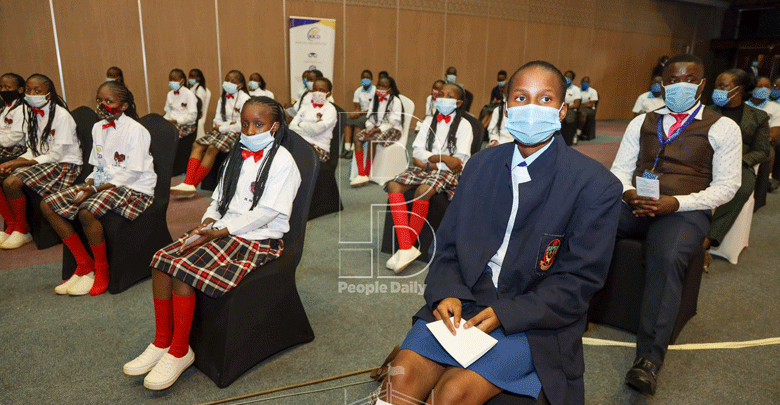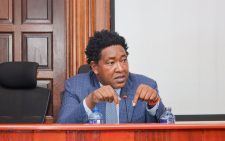Experts mull huge cost of rolling out CBC

Bernard Gitau @benagitau
Education stakeholders were yesterday grappling with the financial implications of the proposed Competency Based Curriculum (CBC) expected to run into billions of shillings.
Several stakeholders, who spoke to People Daily, warned that the burden of putting up school infrastructure, especially classrooms may be passed onto parents.
Kenya National Union of Teachers voiced concerns that the current economy may not be able to fund the cost of infrastructure to support the proposed education system.
“The Junior Secondary School (JSS) ought to have been domiciled in the primary section because then, they would only need classrooms for one grade.
It will be much more expensive if you domicile it in the senior secondary school because you will need classrooms for grades Seven and Eight,” said Knut Secretary-General Wilson Sossion.
“We have not discussed the economies of CBC. It is a costly venture, which this ailing economy can ill afford.
If the JSS is domiciled in primary schools, we will only need about 23,000 extra classrooms for a start, but if you domicile it in the secondary section, you will need to put up about 66,000 extra classrooms,” he added.
Too early
“What we ought to have done is to customise CBC into the existing academic structure that is the 8-4-4, that is what other countries have done,” he further stated.
But the chairperson of the National Assembly Committee on Education, Busia Woman Rep Florence Mutua called for patience, saying it was too early to determine the financial implications of the proposed system.
“It is too early to quantify the financial implications until the proposed department comes up with a work plan.
We are only at the formative stage and have to wait until the PS in charge of the department comes up with what would be required to implement the new system,” she stated.
A member of the task force that developed the CBCF report, who declined to be named because he swore an oath not to reveal its contents, confirmed that the new curriculum will require billions of shillings to be implemented seamlessly.
He, however, said the bulk of the funds will go towards putting up infrastructure in the secondary section, which will require extra classrooms, and other support infrastructure to accommodate both the Junior and senior secondary school sections.
“The government will give the way forward with regards to infrastructure for both Junior and Senior Secondary.
However, there is still time for the Government to put in place adequate infrastructure, before the country can officially transition to CBC structure,” he added, downplaying concerns that the new system is not financially viable.
The task force, chaired by Prof Fatuma Chege, made several recommendations to mitigate the expected huge financial cost of implementing the system, which will replace the 35-year old 8-4-4 system.
They, for instance, suggested provisions such as stand-alone Pre-Primary One and Two; Pre-Primary One and Two and Grades One, Two and Three and Pre-Primary One and Two and Grades One–Six.
Another structure
Alternatively, schools could combine Primary and Junior Secondary School, or exclusively JSS, “especially for private schools that may wish to invest only for this level.”
Another structure is Junior and Senior Secondary schools or in the alternative, Senior Secondary School only, especially for private schools, which may wish to invest only for this level.
Lastly, it proposed a “whole school” model, running from Pre-Primary to Senior Secondary School.
To make it financially viable, the task force recommended the development of a Public–Private Partnership policy and a framework for Basic Education to give incentives to the private sector to supplement access to basic education.
To address the infrastructural deficit, the taskforce recommended that the JSS section be domiciled in the secondary school structure.
“Undertake progressive expansion of capacities of existing secondary schools that have adequate land to accommodate more learners in 2023,” said the task force.














